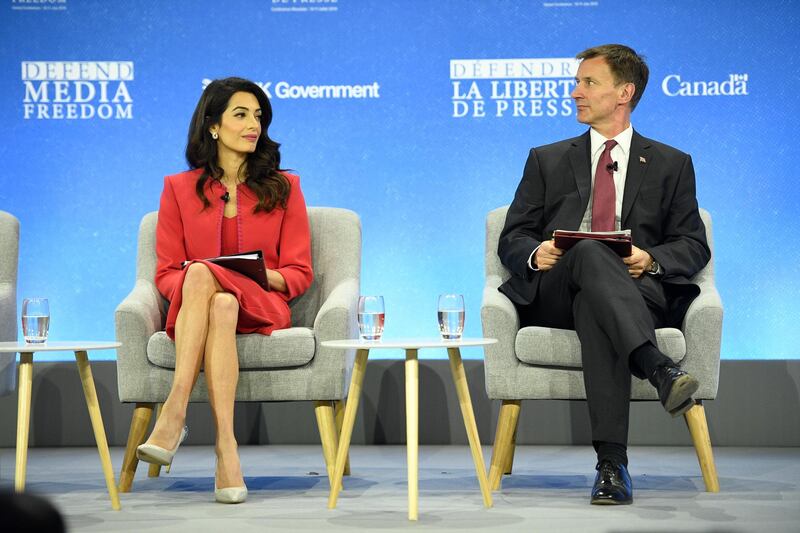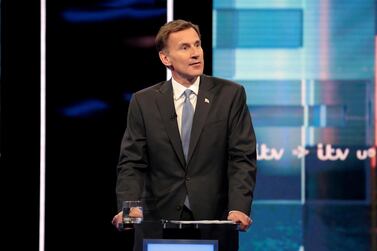Media freedom is a concern that is shared across all countries as even the Western democracies need to do more to expand the space for journalism to flourish, a conference in London has heard.
The host of what is designed to be an annual event, Jeremy Hunt, the British Foreign Secretary, used the stage to openly share his disagreements with US President Donald Trump who has dubbed the press as “enemies of the people”.
Speaking at a press conference at the Global Conference for Media Freedom in London on Wednesday, Mr Hunt said: “I wouldn’t use the language president Trump used and I wouldn’t agree with it. I think we have to remember whatever the political battles we face in countries where we are used to press freedom, it’s part of our daily lives and we’ve never known anything else, we have to remember that what we say can have impact in other countries where we can’t take press freedom for granted.”
Mr Hunt announced a five point plan to give a global boost to the media, a new global fund for journalism, an establishment of international task force to address problems, a legal panel including the celebrity lawyer Amal Clooney, a shared pledge of values and a commitment by states to lobby.
He added that is part of the reason why he launched the conference with the Canadian government.
"For the first time we flying the flag for that awkward tension between politicians and journalists because we have that symbiotic relationship where we each make the other’s life difficult and actually what we end up with is freer and stronger societies," he said.
The Global Conference for Media Freedom, taking place on Wednesday and Thursday, welcomed delegations from more than 100 countries, including 60 ministers, and at least 1,500 journalists, academics and campaigners.
Mr Trump has previously used terms like “fake news” and “lying press” when describing the media.
After being asked at the press conference about Sir Kim Darroch, the British former ambassador to the US who resigned earlier on Wednesday after secret diplomatic memos were leaked giving a scathing view of the Trump administration, the foreign secretary reaffirmed his support for the ambassador.
Boris Johnson, Mr Hunt’s rival in his bid to become Britain’s Prime Minister, refused to defend Mr Darroch in a televised debate on Tuesday evening.
“Boris can speak for himself and I will speak for myself,” said Mr Hunt.
“I think it’s absolutely essential when our diplomats do their job all over the world and in this case Sir Kim Darroch was a very experienced diplomat. We defend them because we have the largest diplomatic network [in the world] after the United States and China and it is incredibly important both for the United Kingdom and for the defence of the values of the United Kingdom supports like press freedom.
“In this situation we had a fine diplomat just doing what he should have been doing. He was giving a frank personal assessment of the political situation of the country he was posted and that’s why I defended him and I think we all should.”
Mrs Clooney, the British Foreign Office’s Special Envoy on Media Freedom agreed with Mr Hunt’s assessment that media freedom is an issue that affects every country, even stable democracies.
She said that the recent indictment against Wikileaks founder Julian Assange alarmed newspapers around the world, alleging that the efforts to prosecute him was in danger of criminalising practices in journalism that had long served the public interest.
Mrs Clooney said: “You may think that these problems only affect people in far-off lands; but that is not true. These problems are global. They exist even in democracies that otherwise have a strong tradition of free speech; and no region is untouched. Many people don’t know that journalists have been murdered because they are journalists even here in Europe, in places like Malta and Slovakia.”







